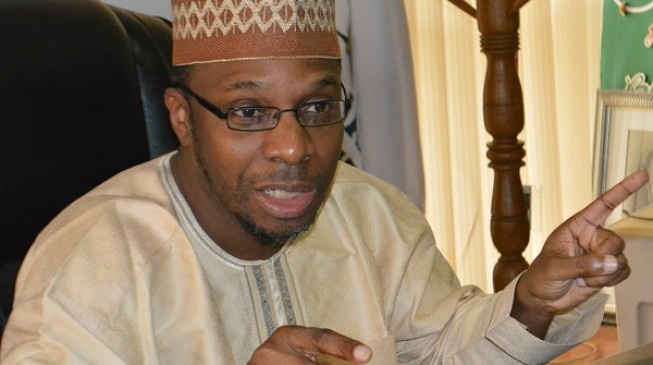
The bureau made this known in its National Corruption Report released on Wednesday.
A survey carried out in collaboration with the UN office on drugs and crime showed that 32.3 per cent of Nigerian adults paid bribes to public officials between June 2015 and May 2016.
“Taking into account the fact that nine out of every 10 bribes paid to public officials in Nigeria are paid in cash and the size of the payments made, it is estimated that the total amount of bribes paid to public officials in Nigeria in the 12 months was around N400bn, the equivalent of $4.6bn in purchasing power parity,” the report read.
“This sum is equivalent to 39 per cent of the combined federal and state education budgets in 2016. This means that every time a Nigerian pays a cash bribe, he or she spends an average of 28.2 per cent of the average monthly salary of N18,900.
“Since bribe payers in Nigeria pay an average of 5.8 bribes over the course of one year, 92 per cent of which are paid in cash, they spend an average of N28,200 annually on cash bribes – equivalent to 12.5 per cent of the annual average salary.”
85.3 per cent of bribery cases in Nigeria, the report said, were initiated either directly or indirectly by public officials.
“With such a large portion of public officials initiating bribes, which are paid upfront, it seems that many public officials show little hesitation in asking for a kickback to carry out their duty and that bribery is an established part of the administrative procedure in Nigeria,” it said.
Bribe takers: Police, judges, prosecutors
According to the report, police officers, judges and prosecutors are the highest recipients of bribes among government officials in Nigeria.Police officers were however adjudged the highest takers of bribes.
Almost half (46.4 per cent) of all adult Nigerians who had direct contact with a police officer one year before the survey were said to have paid a bribe.
Other categories of public officials who were found to occasionally receive bribes from Nigerians were car registration/driving licence officers (28.5 per cent); tax and customs officers (27.3 per cent); road traffic management officials (25.5 per cent), public utilities officers (22.4 per cent) and land registry officers (20.9 per cent).
The report further read: “Police officers are the type of public officials to whom bribes are most commonly paid in Nigeria. Of all adult Nigerians who had direct contact with police officers in the 12 months prior to the survey, almost half paid the officers at least one bribe, and in many cases, more than one since police officers are also among the three types of public officials to whom bribes are paid most frequently in Nigeria.
“At the same time, the average bribe paid to police officers is somewhat below the average bribe size.
“Although fewer people come into contact with judiciary officials than with police officers over the course of the year, when they do, the risk of bribery is considerable: at 33 per cent, the prevalence of bribery in relation to prosecutors is the second highest, closely followed by judges and magistrates.”
Taking the frequency of bribe payments and number of people offering bribes into cognizance, the report estimated that a total of 82.3 million bribes were paid in one year. - Cable Nigeria
No comments:
Post a Comment